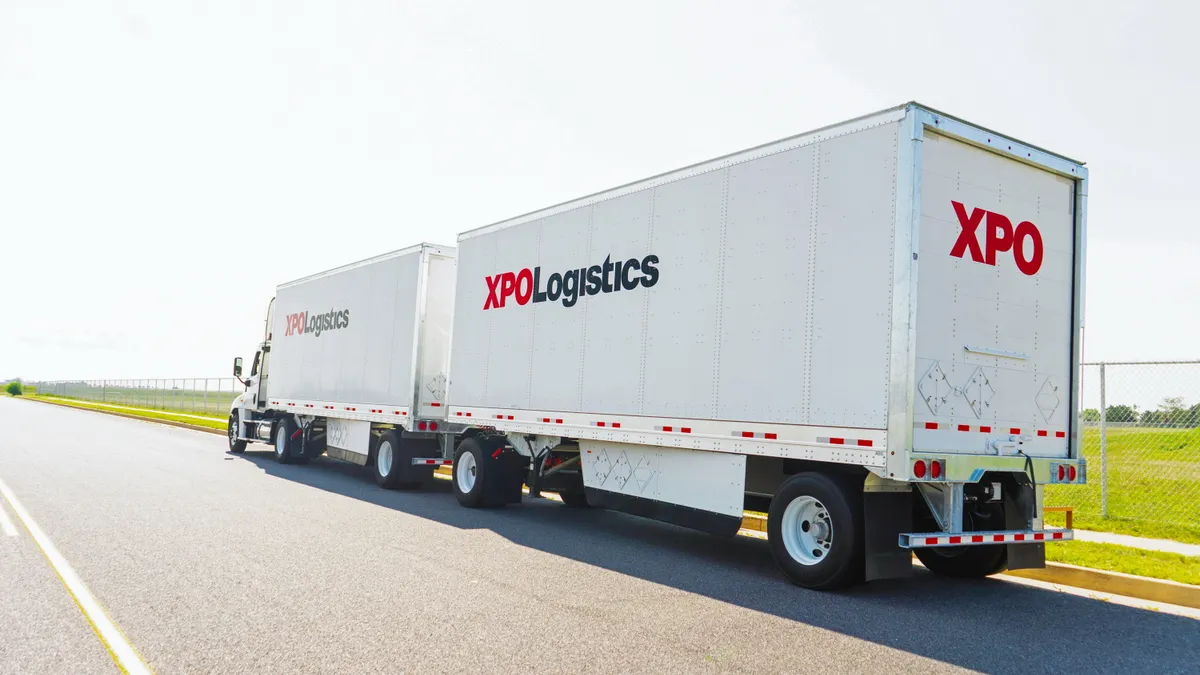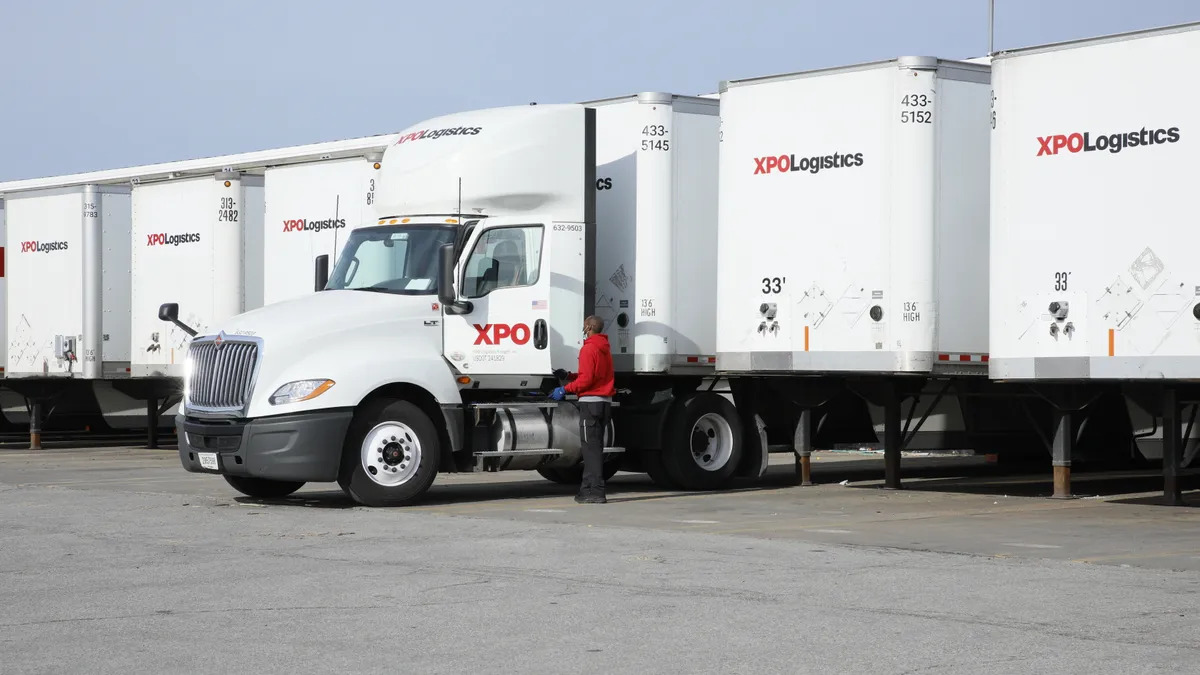XPO Logistics surprised the business world on Wednesday when CEO Bradley Jacobs said the company would spin off its global contract logistics segment. Jacobs had declared a plan to consider spinoffs in January but pulled back in March as coronavirus spread throughout the world.
At the heart of the spinoff is XPO's valuation. Jacobs said XPO has been unintentionally offering a "conglomerate discount," and this irked jim for a long time. Jacobs has said that one of the reasons for his plan was that Wall Street did not value XPO in the same way as other "pure play" LTL companies.
"The street doesn't understand XPO," said Joe Checkler, vice president of public relations and social media.
Now Jacobs is ready to shift the company into high gear, while splitting it into two pieces.
A few external factors made Jacobs decide to proceed with the plan, according to Nikhil Sathe, managing director of Logisyn Advisors, a M&A consulting firm. Vaccines are arriving soon, and the presidential race has been decided. Congress is narrowly divided, and the business world is actually happy that Washington will be gridlocked, Sathe said.
"This is a very smart move," said Sathe. "It's going to do things. It's going to lift his [earnings per share], and it's going to lift his multiples [of EBITDA] ... I am sure his endgame is to maximize shareholder value."
Farrah Salim, senior principal analyst with Gartner's supply chain practice, said the split was not all about stock valuation. It will also allow the XPO companies to focus on the different needs that its customers have, Salim said, adding that XPO has honed its customer-satisfaction skills.
"Customers are very loyal to them," said Salim.
Checkler said XPO expects management to stay in place and keep customer service in place, or, as he says, XPO "business as usual."
Valuing XPO correctly
Jacobs has driven XPO to new heights since he began making transportation-related acquisitions in 2011, buying a company that had the ticker symbol "XPO." Jacobs later named the entire company after that symbol. His $3 billion purchase of Con-way in 2015 made XPO the second-largest LTL company at the time.
Transport Topics ranks it as the third-largest North American for-hire carrier and the largest logistics company.
A Cowen memo from Dec. 2 speculated Jacobs, a longtime investor who owns 18% of XPO stock, is eyeing an eventual exit from the company. XPO did not comment on the speculation.
But it would be uncharacteristic for Jacobs to leave before he finishes his goals. Jacobs has always been clear that slimming XPO down to its core LTL business would bring truer value to XPO shareholders. And it would make XPO truly competitive with other LTL carriers, who have higher valuations for similar performance.
XPO's stock price is lower than ODFL's but higher than YRC's
In the near future, investors and street analysts will have no choice but to address XPO as a pure-play LTL carrier. The bifurcation is slated to be complete in the second half of 2021.
The company has five segments, according to Checkler. One is its LTL business. The second and third segments are North American and European transportation segments. Those three segments will remain in the core company, which for now goes by "XPORemainCo," a placeholder name. XPORemainCo makes up about 64% of the present company, Checkler said.
The transportation segments include truck brokerage, intermodal, expedited, freight-forwarding and final-mile.
The fourth and fifth segments are the U.S. and European contractual logistics businesses. Those segments will be folded into what Jacobs calls "NewCo," another placeholder.
Because XPO is merely splitting the company, not selling anything, it is a tax-free transaction for shareholders. Checkler said he also does not see an immediate change in LTL market share.
The LTL marketplace is highly competitive. At the end of 2019, FedEx Freight led with about 16.8% of the LTL market, according to research shared by Baird. YRC Worldwide comes in at second, at 11%, with Old Dominion placing third with 9.3%. XPO and UPS rank fourth and fifth, respectively. But estimates can vary.
The problems with multiples
XPO's problem, according to Jacobs, was the company's EBITDA performance value was not reflected in stock price. Jacobs often said XPO's LTL competitors saw their EBITDA fairly reflected in valuation.
To Jacobs, that was a problem.
Sathe said he agreed with Jacobs' assessment that XPO was undervalued compared to other LTL firms.
"Even though it was one company, it was really two different companies within one company."

Nikhil Sathe
Managing Director at Logisyn Advisors
"Even though it was one company, it was really two different companies within one company," said Sathe.
Jason Seidl, Cowen managing director for industrials, airfreight and surface transportation, said in a recent memo that the split will likely aid in giving new focus to the LTL and logistics sides.
"This should give the market two cleaner transportation stories and unlock a good portion of the discount that is applied to the current global transport conglomerate," Seidl wrote in a Dec. 2 memo.
Salim said the business-environment signs are good for XPO's two arms, given the growth of e-commerce, and she doubts that will change if coronavirus fades. Salim said new online choices are keeping consumers satisfied and driving cargo through the supply chain like never before.
"E-commerce definitely increased volumes," Salim said. "There's much more demand for LTL than there was before."
Checkler said the execution should be smooth, with the company splitting and the two new stocks issued by midyear 2021. The split needs board approval, which it has, but doesn't need shareholder approval.















